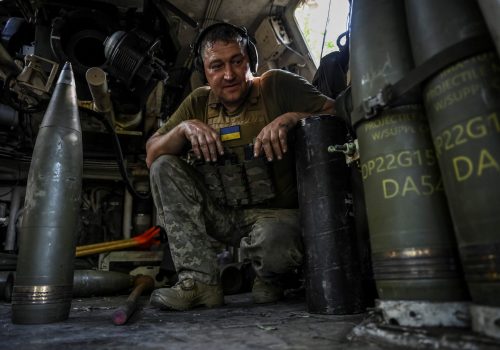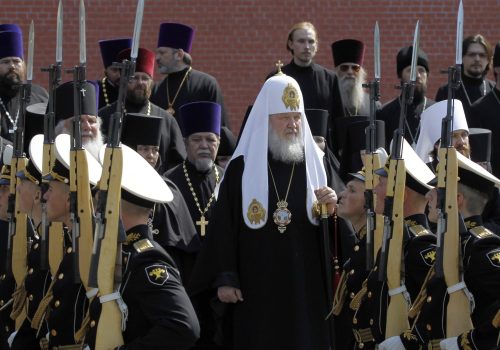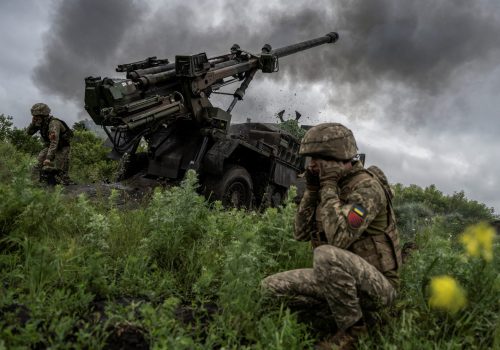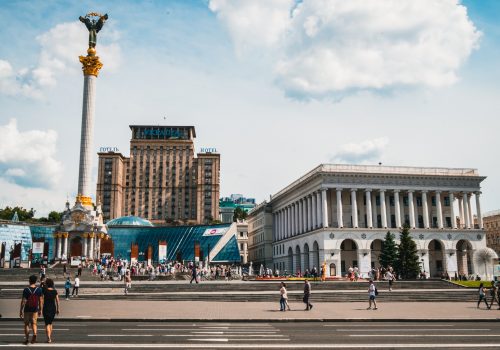
Peace is impossible while Vladimir Putin denies Ukraine’s right to exist

Recent comments by Ukraine’s commander-in-chief, General Valery Zaluzhny, claiming that the war with Russia has reached a “stalemate,” have sparked fresh calls for a negotiated settlement. While this desire to end the bloodshed in Ukraine is perfectly understandable, anyone advocating a peace deal with Vladimir Putin must first reckon with the genocidal reality of Russia’s invasion. Putin himself has repeatedly made clear that he denies Ukraine’s right to exist and is determined to extinguish Ukrainian statehood. Unless he is defeated, any compromise agreement would merely set the stage for the next phase in Russia’s campaign to wipe Ukraine off the map.
Putin’s obsession with Ukraine and his rejection of the country’s historical legitimacy were on full display recently during a November 3 address to Russia’s Public Chamber. “There was no Ukraine in the Russian Empire,” he declared. The Russian dictator went on to repeat many of his most notorious historical distortions, including the claim that Ukraine had been artificially created by Vladimir Lenin and the early Soviet authorities “at the expense of southern Russian lands.”
Such arguments are not new. Indeed, Putin has been weaponizing history to delegitimize independent Ukraine for nearly two decades, with this trend escalating dramatically during the build-up to the current full-scale invasion. In July 2021, Putin published a 6,000-word essay attacking Ukraine as an artificial state and arguing that Ukrainians are in fact Russians (“one people”). This chilling treatise was widely circulated throughout the Russian military and has since come to be viewed as the ideological basis for the invasion of Ukraine.
Months after the outbreak of hostilities, Putin compared his invasion of Ukraine to the eighteenth century imperial conquests of Russian Czar Peter the Great while claiming that he was “returning Russian lands.” During subsequent ceremonials marking the “annexation” of four partially occupied Ukrainian provinces, he declared these regions would be part of Russia “forever.” On the first anniversary of the invasion, Putin told crowds in Moscow that Russia was fighting for its “historical lands” in Ukraine.
Putin’s historical illiteracy and duplicity were once again on display in spring 2023 when he publicly inspected a seventeenth century French map depicting the lands of Eastern Europe including today’s Ukraine. The Russian dictator pointed to the map as supposed proof that “no Ukraine ever existed in the history of mankind,” despite the fact that Ukraine was clearly indicated by name on the map.
If he had been paying more attention, Putin would have noticed that the map did not contain any references to the Russian Empire, which was at the time known as Muscovy. Nor did it feature his own hometown, Saint Petersburg, which was not founded until the beginning of the eighteenth century. In contrast, the Ukrainian capital Kyiv is thought to date back over 1500 years, making it far older than Russia’s leading cities.
Subscribe to UkraineAlert
As the world watches the Russian invasion of Ukraine unfold, UkraineAlert delivers the best Atlantic Council expert insight and analysis on Ukraine twice a week directly to your inbox.
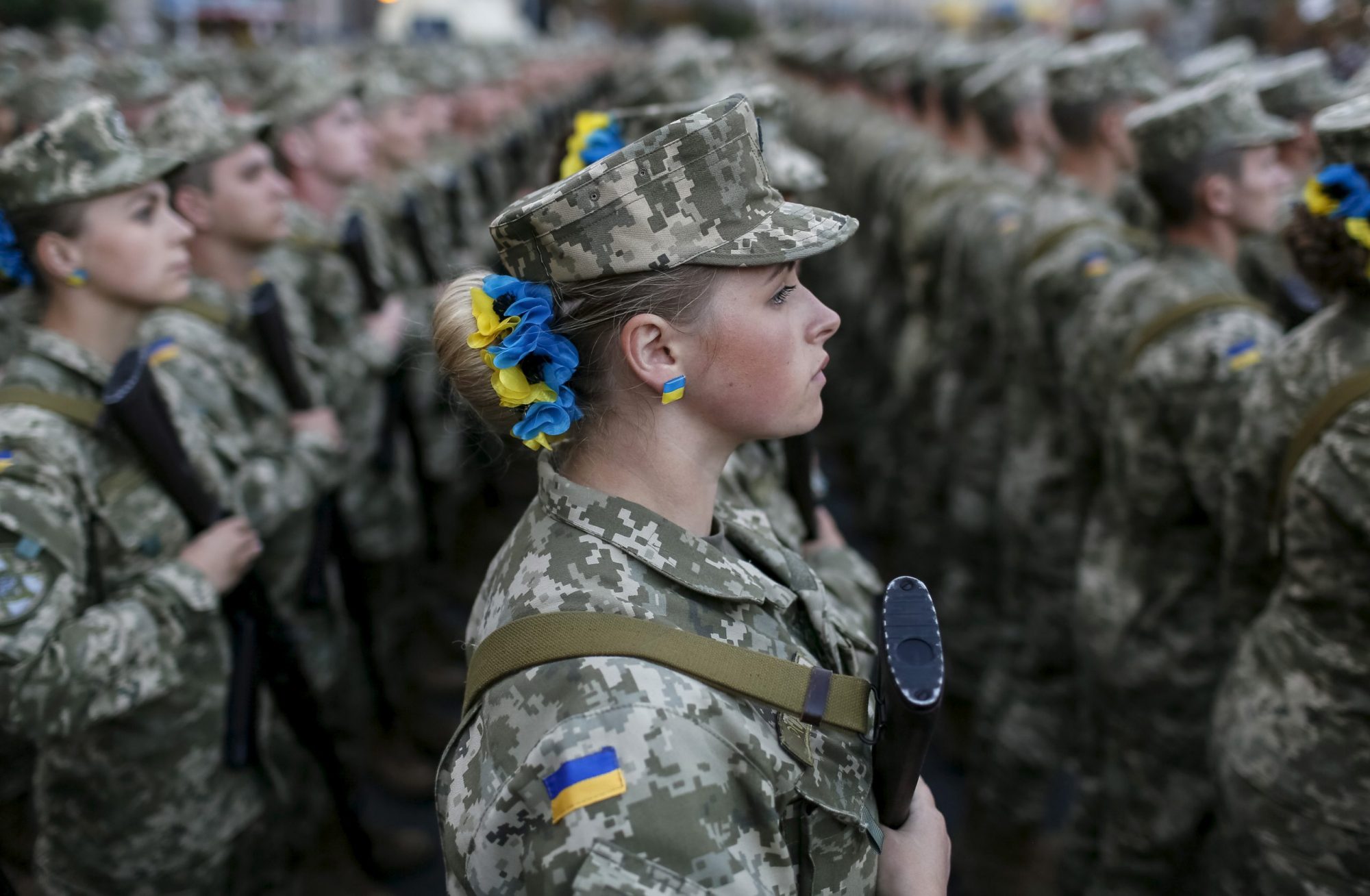
-
-
-
This field is for validation purposes and should be left unchanged.
Putin is not the first Russian ruler to deny the existence of the Ukrainian nation. On the contrary, Ukraine denial has been a central pillar of Russian imperial policy for centuries. The Russian Empire consistently refused to acknowledge Ukraine precisely because the repression of Ukrainian national identity was regarded as essential for the survival of the Czarist regime. Instead, Ukrainians were labelled as “Little Russians” by the Czarist authorities, who banned the Ukrainian language while declaring, “a separate Little Russian language never existed, does not exist, and shall not exist.”
Putin’s insistence on Ukraine’s alleged lack of legitimacy reflects Russia’s deep insecurity about its own past. Generations of Russians have traced their national story back to Ukraine and the Kyivan Rus state of medieval Europe. However, many historians regard today’s Russia as the successor to the Grand Duchy of Moscow, which first rose to regional prominence as a vassal state of the Mongol Empire long after the decline and fall of the Kyivan Rus.
Despite these tenuous ties to the Kyivan Rus era, Russian rulers since the seventeenth century have laid claim to Kyiv’s historical legacy in order to justify the colonization of Ukraine and strengthen their European credentials. Putin has continued this tradition, unveiling a huge monument to tenth century Kyivan Rus ruler Prince Volodymyr the Great in central Moscow in 2016, despite the fact that the Russian capital city was not founded until more than a century after Volodymyr’s death.
Eurasia Center events

Following the 1991 collapse of the USSR, growing international awareness of Ukrainian history has raised awkward questions about many deeply engrained aspects of Russia’s national narrative dating back to the Czarist and Soviet eras. This helps to explain why Putin and other members of the Russian establishment regard the consolidation of Ukrainian statehood as an existential threat to their own authoritarian empire. Independent Ukraine’s embrace of European democratic values has only served to heighten this sense of danger within the Russian elite.
Putin has sought to frame the invasion of Ukraine as a crusade for historical justice and the return of ancestral Russian lands. In reality, it is an old-fashioned colonial war that echoes the worst excesses of European imperialism. His mythologized version of Russian history is utterly incompatible with the notion of a separate Ukrainian nation; he is therefore obliged to deny its existence entirely.
This denial is now fueling a genocide in the heart of Europe. Russian troops have already killed thousands of Ukrainians and have deported millions more. Throughout the regions of Ukraine currently under Kremlin control, the Russian occupation authorities are openly engaged in the methodical eradication of Ukrainian identity and the forced russification of the remaining population.
In such circumstances, international calls for a compromise peace are deeply disingenuous. It should be crystal clear to all objective observers that unless Ukraine can achieve a decisive victory, any pause in hostilities would merely provide the Kremlin with breathing space to rearm and regroup before renewing hostilities. Putin has weaponized history to justify the destruction of a neighboring state that threatens his dreams of a new Russian Empire. Until this imperial ideology is decisively defeated, the war will continue.
Taras Kuzio is a professor of political science at the National University of Kyiv Mohyla Academy and an associate research fellow at the Henry Jackson Society. He is the winner of the 2022 Peterson Literary Prize for the book “Russian Nationalism and the Russian-Ukrainian War: Autocracy-Orthodoxy-Nationality.”
Further reading
The views expressed in UkraineAlert are solely those of the authors and do not necessarily reflect the views of the Atlantic Council, its staff, or its supporters.

The Eurasia Center’s mission is to enhance transatlantic cooperation in promoting stability, democratic values and prosperity in Eurasia, from Eastern Europe and Turkey in the West to the Caucasus, Russia and Central Asia in the East.
Follow us on social media
and support our work
Image: Russian President Vladimir Putin listens to Deputy Prime Minister and Minister of Industry and Trade Denis Manturov during a meeting at the Kremlin in Moscow, Russia. October 24, 2023. (Sputnik/Gavriil Grigorov/Pool via REUTERS)
